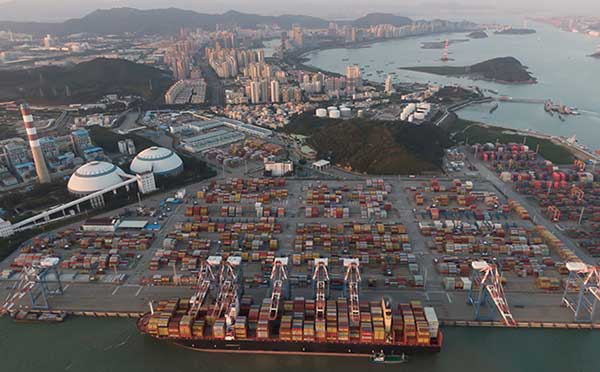Customs brokers provide greater value by combining consultative and transactional approaches to facilitating the movement of freight.

By Joe Monaghan, Chairman and CEO of Worldwide Logistics Group
Customs processes get regular media attention when odd parcels are intercepted and seized, from counterfeit luxury goods to unapproved cosmetics. Executives of legitimate businesses have other pitfalls to avoid, like delays that could cause reputational harm, rejected freight that could negate a sale, or financial exposure if compliance with evolving import regulations is not met.
If something goes wrong, those are hard conversations to have with other internal stakeholders. The process needs to be efficient so freight isn’t hung up in customs as the clock continues to tick. In supply chains, everyday matters.
Often, businesses enlist customs brokers to facilitate the expeditious movement of goods across borders and avoid risks or surprises. Some brokers focus on the compliance side of the equation, ensuring that the proper documents are in place and that freight has been classified appropriately — essentially acting on behalf of U.S. Customs and Border Protection. But they can’t lose sight of the transactional nature of the customs entry and its importance in expediting cargo to delivery.
The most helpful brokers understand the need for both and have a sense of urgency for moving that freight to its following location, whether it’s a manufacturing plant for further assembly or store shelves somewhere across the globe. By balancing two mindsets, customs brokers can offer more excellent value.
Most customers think the customs process is merely a formality — they just want to pick up their freight as quickly as they can for as little cost as they can. Some big companies may have a compliance expert on staff, but the majority aren’t aware of how consequential all the requirements are. If you miscalculate the value of goods or don’t classify them properly, it could be problematic down the road.
CBP enforcement is similar to that of the IRS, both are divisions of the US Department of the Treasury. In extreme cases, accusation and conviction of fraud could lead to huge financial exposure and even lead to jail time. Even mistakes borne from a too casual attitude can lead to significant fines and penalties. Proactive brokers can enlighten these customers about issues they may be unaware of so they can rectify them and avoid being penalized.
Having a strong process and sense of urgency means the broker understands the bigger picture. Prioritizing the movement of the freight — getting it entered appropriately, cleared, and delivered — solves the customer’s most pressing need.
Brokers can provide a great service by helping their customers with transaction planning and educating them on what the risks and exposures are if compliance is not addressed. They can advise customers on how to adhere to those regulations so they avoid fines, penalties, and interruptions.
Accurate description and classification of goods, evaluation of value, and complete documentation are all required for an efficient customs entry. There are also other agencies like the United States Department of Agriculture (USDA), Food and Drug Administration (FDA), and Federal Communications Commission (FCC) that may need to weigh in, depending on what the freight is. Brokers can call attention to those scenarios early to avoid delays for the customer down the road.
Brokers can also help save duty costs by educating customers on other manufacturing alternatives that might be beneficial. For instance, athletic footwear used to be made of canvas. The trend of making them from leather and synthetics in the 1980s was driven by lower duty rates for those materials at the time.
Informing sourcing practices is another great way to provide value to customers. Say a customer wants to import a product from Indonesia at a certain duty price, but the broker knows the same product is available in another region at a lower price. Opening the customer’s eyes to savings could be an enormous benefit.
As the global trade landscape continues to evolve, so does the role of the customs broker. Balancing transactional efficiency with a consultative approach offers the best value to customers and helps the process move smoother.

Joe Monaghan is the CEO and Chairman of Worldwide Logistics Group. Before forming Worldwide Logistics in 1998, Joe was Executive Director of International for Fritz Companies, Inc., where he was employed for 10 years. In this role, he was responsible for managing all Fritz, non US locations. This included management of over 1,000 employees in over 25 countries. During his career, Joe has held executive positions with Fritz, Geo Logistics and OOCL. He has spent extensive time traveling and living abroad. Joe is a graduate of Fairleigh Dickinson University and did postgraduate study at University of New Hampshire.
Scott Ellyson, CEO of East West Manufacturing, brings decades of global manufacturing and supply chain leadership to the conversation. In this episode, he shares practical insights on scaling operations, navigating complexity, and building resilient manufacturing networks in an increasingly connected world.